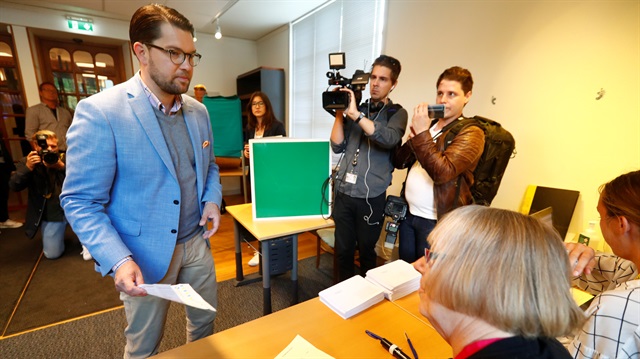
EUROSCEPTIC VOICES
Sweden has flirted with populism before. New Democracy, founded by an aristocrat and a record producer, won nearly 7 percent of the vote in 1991, on the promise of strict immigration policies, cheaper alcohol and free parking, only to crash out of parliament three years later.
The Sweden Democrats are bidding to become the biggest populist party in the Nordic region, topping the Danish People's Party, which gained 21 percent in 2015, and trump the 12.6 percent for the far-right Alternative for Germany, which swept into the Bundestag last year.
With an eye on the European Parliament elections next year, Brussels policymakers are watching the Swedish vote closely, concerned that a nation with impeccable democratic credentials could add to the growing chorus of euroscepticism in the EU.
Sweden took in more asylum seekers per capita than any other country in Europe in 2015, magnifying worries about a welfare system that many voters already believe is in crisis.
Lengthening queues for critical operations, shortages of doctors and teachers and a police service that has failed to deal with inner-city gang violence have shaken faith in the "Swedish model", built on a promise of comprehensive welfare and social inclusion.
The Sweden Democrat's Akesson has labelled the vote a choice between immigration and welfare in election campaign that has been unusually antagonistic.
"It has been really unpleasant," student Katze Collmar, 32, said while voting in central Stockholm.
"It feels like Sweden could take a step in this election that we won't be able to recover from very easily."
Mainstream politicians have so far refused to cooperate with the Sweden Democrats.
But with some kind of cooperation between parties in the centre-left and centre-right blocs the only other alternative to the current political deadlock, analysts believe that Akesson may yet end up with some influence on policy.
Akesson has promised to sink any government that refuses to give his party a say in policy, particularly on immigration.
With deadlock looming, it could take weeks to form a government.
Voting stations close at 1800 GMT, with exit polls set be published by Sweden's two main broadcasters. Results from the vote will become clear later in the evening.


